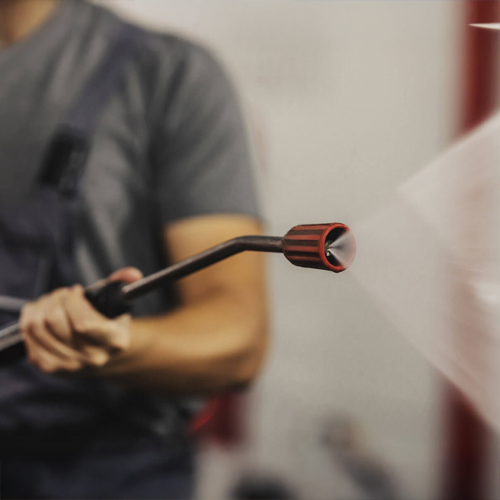TIPS FOR HEAVY EQUIPMENT WASHING
BEST PRACTICES FOR HEAVY EQUIPMENT WASHING
Cleaning is a critical aspect of machine maintenance. It helps improve performance, reduce wear and tear, boost efficiency, extend service life, and safeguard your investment. However, heavy equipment cleaning isn’t as straightforward as washing your car. To help you complete it the right way, we’ve put together some important tips and best practices.
MAINTAIN A REGULAR SCHEDULE
The frequency of heavy equipment washing depends on your usage and specific jobsite conditions. For particularly muddy or dusty environments, you might need to clean it every few days or at least once a week. We suggest adhering to a cleaning schedule as part of your regular machine maintenance routine, because the longer you leave grease, mud, and other debris on your equipment, the more it interferes with operation and the tougher it is to get off.
USE A DEDICATED CLEANING AREA
When washing heavy equipment, it’s crucial to use specialized areas or bays designed to collect and process wastewater. Many local regulations prohibit the discharge of water containing grease, fuel residues, and other pollutants into open waters and groundwater sources. Dedicated wash bays allow you to clean your machinery while preventing contaminants from entering the surrounding environment.
There are two primary types of heavy equipment washing bays. The first is a permanent station built at your facility or equipment storage site. They second is a portable wash pad that can be brought with you from jobsite to jobsite. Whether permanent or portable, both types work by capturing the polluted water in a catch basin below the wash pad and then moving it through a water treatment recycling system that removes the harmful materials.
ALWAYS BRING A PRESSURE WASHER
A pressure washer is an essential tool for tackling the most challenging heavy equipment cleaning jobs. It can effectively remove persistent residue from hard to reach areas, including old grease, mud, rocks, sludge, vegetation, and more. For buildup that is especially difficult to clean off, we recommend using a hot water pressure washer. The hot water dissolves and breaks down the toughest grime more quickly and efficiently than cold water, helping you save both time and water.
PRIORITIZE APPROPRIATE PROTECTIVE GEAR
During heavy equipment cleaning, we strongly recommend wearing full length clothing or coveralls, slip resistant footwear, face and eye protection, and gloves. Proper attire and equipment will minimize the risk of employee injuries from hot water, chemicals, or contaminants that dislodge from the machinery.
SELECT THE RIGHT CLEANING AGENTS
When your equipment is covered in a combination of organic materials (like lubricating grease, fuel residue, or animal waste) and inorganic substances (such as sand, gravel, and dust), detergents will make the cleaning process easier and more effective.
Here are some effective chemicals for removing grease, dirt, and grime from your machines:
- Acidic pre-soaks and/or aluminum brighteners for oxidation and mineral residue
- High pH detergent to neutralize your low pH presoak & clean normal buildup
- Friction detergent for brush washing that will reduce drying & surface abrasions
- Degreaser for a heavy buildup of grease, fuel spills, and oils
- Concrete and cement cleaner for removing paving materials, lime, fly ash, rust, and water scale
REMOVE ATTACHMENTS BEFORE CLEANING
When completing heavy equipment washing, it’s essential to take off any attachments and clean them separately. This approach allows easier access to accumulated grime and makes the entire washing process easier and more effective.
For any inquiries about heavy equipment washing or general machine maintenance, please contact our team.
